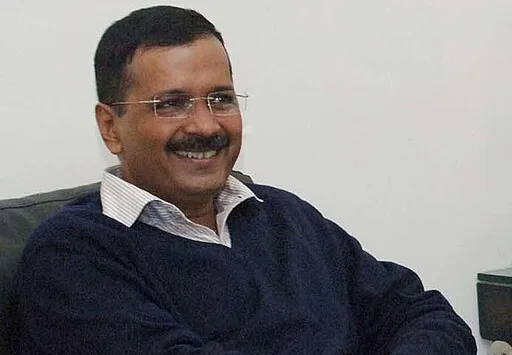Supreme Court allows Arvind Kejriwal’s bail in the excise policy case, addressing concerns about arrest timing and procedural fairness
In a significant legal development, the Supreme Court of India has granted bail to Delhi Chief Minister Arvind Kejriwal. This ruling comes after extensive hearings and intense legal scrutiny regarding his arrest and the excise policy case against him.
The Supreme Court bench, comprising Justices Surya Kant and Ujjal Bhuyan, issued the verdict after reviewing arguments from both sides. The case had been under the court’s examination since September 5, following the reservation of judgment. Kejriwal’s legal team, led by advocate Vivek Jain, argued that his arrest by the Central Bureau of Investigation (CBI) was procedurally flawed and unjustified. They challenged the denial of bail and the timing of his arrest.
Additional Solicitor General SV Raju, representing the CBI, had opposed Kejriwal’s bail, contending that his arrest was necessary to address alleged procedural violations. The CBI accused Kejriwal of involvement in irregularities related to Delhi’s excise policy, which had been introduced in 2021-22 to overhaul the city’s liquor sales framework.
Embed from Getty ImagesThe excise policy aimed to boost the liquor trade by replacing a sales-volume-based system with a license fee for vendors. However, it faced scrutiny and was eventually scrapped following allegations of corruption. The Delhi Lieutenant Governor VK Saxena had called for a CBI probe, leading to Kejriwal’s arrest on June 26, 2024. Prior to this, Kejriwal was already in custody of the Enforcement Directorate (ED) due to a related money laundering investigation.
The Supreme Court’s judgment emphasized the principle that bail is the standard, while imprisonment should be an exception. Justice Bhuyan questioned the timing and rationale behind Kejriwal’s arrest, suggesting that the grounds cited—non-cooperation—were not sufficient for such measures. He underscored that procedural violations should not result in undue punishment before a trial.
Justice Kant highlighted the importance of speedy justice and fairness, reinforcing that the legal process should not be used as a punitive tool. The court’s decision grants Kejriwal temporary relief while the investigation continues, marking a crucial moment in the high-profile case.
Kejriwal’s legal battle has attracted widespread attention due to his prominent political role and the serious allegations against him. The Supreme Court’s decision could have far-reaching implications for both the legal framework surrounding corruption cases and political accountability in India.
Analysis
Political: The Supreme Court’s decision to grant bail to Arvind Kejriwal is a pivotal moment in Indian politics. As the Chief Minister of Delhi and a prominent leader of the Aam Aadmi Party (AAP), Kejriwal’s legal challenges have significant political ramifications. This ruling may impact the political landscape in Delhi, influencing both public opinion and the dynamics within the AAP. The case has heightened scrutiny on the Delhi government and its policies, potentially affecting Kejriwal’s political standing and future elections.
The bail decision also underscores the judiciary’s role in ensuring procedural fairness and protecting the rights of individuals, even when they face serious allegations. This move might shape the approach of other political figures facing similar legal challenges and could influence how corruption cases are handled in the future.
Social: The legal proceedings against Kejriwal have sparked widespread public and media interest, reflecting broader societal concerns about corruption and governance. The case has become a focal point in discussions about political accountability and the integrity of public officials. Kejriwal’s bail could be seen as a victory for his supporters and a setback for critics who view the case as a political manoeuvre.
The public’s reaction to the court’s decision may vary, with some viewing it as a fair application of justice while others might perceive it as a sign of political influence or leniency. The case illustrates ongoing societal debates about the effectiveness of legal and political systems in addressing corruption and ensuring transparent governance.
Racial: The excise policy case does not directly involve racial issues. However, it intersects with broader societal discussions about governance and integrity, which can have indirect implications for various communities. The case’s high-profile nature and the focus on a prominent leader may influence how different racial and ethnic groups perceive the justice system and political accountability in India.
Gender: The case primarily involves male political figures and legal professionals, with no direct gender-related issues. However, the broader discourse around political leadership and accountability can intersect with gender dynamics in terms of public perceptions and the representation of women in politics. The focus remains on the procedural and legal aspects rather than gender-specific concerns.
Economic: The excise policy was designed to boost the liquor industry in Delhi by overhauling the existing framework. Allegations of corruption and the subsequent legal proceedings have potential economic implications for the city’s liquor trade and associated businesses. The case highlights the intersection of economic policy and legal accountability, affecting both public trust and investor confidence in Delhi’s governance. The resolution of the case may influence future economic policies and regulatory frameworks in the region.
